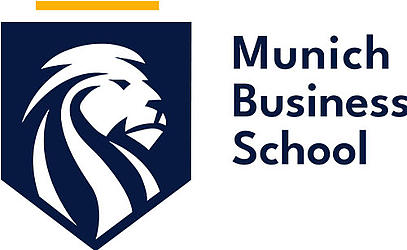This Website uses cookies to improve your visit on our website. More Info
english teaching universities in germany - study in germany in english
English teaching programs at universities in Germany have become increasingly popular among international students seeking high-quality education in a diverse and multicultural environment. With a wide range of disciplines offered in English, including engineering, business, natural sciences, and humanities, Germany has emerged as a leading destination for English-language higher education. These programs not only provide students with access to world-class faculty and research opportunities but also offer the chance to immerse themselves in German culture while studying in a language widely spoken in academia and the professional world.Are there English teaching Universities in Germany?

Many German universities offer programs taught entirely in English, particularly at the graduate level. While German is the primary language of instruction at most universities in Germany, there has been a significant increase in the number of English-taught programs (ETPs) in recent years.
These English-taught programs are often designed to attract international students and promote academic exchange. They cover a wide range of disciplines, including engineering, business, natural sciences, social sciences, and humanities.
However, it's important to note that not all programs at German universities are available in English, this is also true for English teaching universities in Germany. The availability of English-taught programs varies depending on the institution and the specific field of study. Additionally, while some universities offer a few courses in English alongside German-taught programs, others have a more extensive selection of English-language options.
Prospective students interested in studying in Germany in English should research specific English teaching universities in Germany and their offerings to find programs that align with their academic interests and career goals.
The German Higher Education System: Types of Universities, Degree Structure etc.
The German higher education system is renowned for its quality and accessibility. Here's an overview of how it works, not only for the English teaching universities in Germany:
Degree Structure:
- Bachelor's Degree (Bachelor): Typically takes 3-4 years to complete and is awarded after undergraduate studies.
- Master's Degree (Master): Can follow the completion of a bachelor's degree and typically takes 1-2 years to complete. There are also "consecutive" master's programs that directly build upon specific bachelor's programs.
- Doctorate (Doktor): Involves conducting original research and writing a dissertation. It usually takes 3-5 years to complete.
Admission and Tuition:
- Admission to German universities is often based on academic qualifications, such as high school grades or equivalent qualifications.
- Tuition fees at public universities are relatively low compared to many other countries. In some federal states, there are no tuition fees for international students, while in others, nominal fees may apply. Private universities may charge higher tuition fees.
Language of Instruction:
- While German is the primary language of instruction at most universities, there are numerous English-taught programs available, particularly at the graduate level.
- International students may need to demonstrate proficiency in the language of instruction, either German or English, depending on the program they apply to.
Types of Institutions:
- Universities (Universitäten): Offer a wide range of academic disciplines and typically focus on research-oriented education.
- Universities of Applied Sciences (Fachhochschulen): Emphasize practical, hands-on learning and often collaborate closely with industry partners.
- Colleges of Art, Film, and Music (Kunst- und Musikhochschulen): Specialize in artistic disciplines and offer programs in areas like fine arts, design, music, and film.
Semester System:
- The academic year in Germany is divided into two semesters: the winter semester (Wintersemester), which typically runs from October to March, and the summer semester (Sommersemester), which typically runs from April to September.
- Each semester includes a lecture period, followed by an examination period.
Research Opportunities:
- German universities, which include the English teaching universities in Germany, are known for their strong emphasis on research, and many professors actively engage students in research projects.
- There are numerous research institutions and funding opportunities available for both domestic and international students.
Overall, the German higher education system offers a diverse range of programs, high academic standards, and ample opportunities for international students to pursue their academic and career goals.
Can you live and study in Germany using only English?
While it's possible to live and study in Germany with just English proficiency, because of the English teaching universities in Germany, having some knowledge of German can greatly enhance your experience and make it easier to navigate daily life. Here's why:

- Academic Environment: While many universities in Germany offer English-taught programs, especially at the graduate level, you may still encounter situations where German language skills are beneficial, such as interacting with administrative staff, fellow students, or professors outside of class.
- Daily Life: While major cities and university towns in Germany often have a high level of English proficiency among the population, especially among younger people and in academic and professional settings, not everyone you encounter will speak English fluently. Basic knowledge of German can be invaluable for tasks like grocery shopping, using public transportation, or communicating with landlords.
- Integration: Learning German can help you integrate into German society and culture more fully. It allows you to engage with locals, understand cultural nuances, and participate in activities and events that may not be accessible to non-German speakers.
- Employment Opportunities: If you plan to work part-time or pursue internships during your studies or after graduation, knowing German can significantly expand your job prospects, especially in fields that require direct interaction with German-speaking clients or colleagues.
While English can suffice for many aspects of living and studying in Germany, investing time in learning at least basic German can enrich your experience and make your stay more rewarding. Many English teaching universities in Germany offer German language courses for international students, and there are also numerous resources available online and in local communities for language learning.
Seeking more info?
You can find out more about the Challenges of studying abroad and how to overcome them on our following sides:
Universities in Germany for international students
Scholarship for study in abroad
At what kind of universities Can you Study in English in Germany?
In Germany, you can study in English at various types of universities and higher education institutions. Regardless of the type of institution, it's essential to research specific English teaching universities in Germany and programs to find the best fit for your academic interests, career goals, and personal preferences. Each institution may have different admission requirements, tuition fees, and academic offerings, so be sure to carefully review their websites and contact admissions offices for more information. Here are the main types where English-taught programs are commonly offered:

Public Universities
Many public universities in Germany offer English-taught programs, particularly at the graduate level. These universities include both traditional research-focused institutions (Universitäten) and universities of applied sciences (Fachhochschulen). English teaching universities in Germany are known for their academic excellence and often have a wide range of programs available in English.
Private Universities
Some private universities in Germany specialize in offering international programs taught entirely in English. These English teaching universities in Germany often cater to a diverse student body and may have a more business-oriented approach to education. Private universities typically charge tuition fees, unlike public universities, where tuition is often free or low for international students.
Technical Universities
Germany's technical universities (Technische Universitäten) are known for their strong emphasis on engineering, technology, and natural sciences. Many technical universities offer English-taught programs in engineering, computer science, and related fields to attract international students and researchers.
Business Schools
Several business schools and management institutes in Germany offer English-taught programs at the undergraduate, graduate, and postgraduate levels. These programs often focus on areas such as international business, management, finance, and entrepreneurship.
Art and Design Schools
Colleges of art, film, and music (Kunst- und Musikhochschulen) in Germany may also offer English-taught programs in various artistic disciplines, including fine arts, design, music, and film.

What Are the Entry Requirements
to Study in English in Germany?

| Educational Qualifications | Applicants typically need to have completed a relevant secondary school diploma (for undergraduate programs) or a bachelor's degree (for graduate programs) from a recognized institution. The specific academic requirements may vary depending on the program and the English teaching universities in Germany. |
|---|---|
| Language Proficiency | Since English is the language of instruction for English-taught programs, most universities require applicants to demonstrate proficiency in English. This is usually done by providing scores from standardized English language tests such as the TOEFL (Test of English as a Foreign Language) or IELTS (International English Language Testing System). Some English teaching universities in Germany may also accept other English proficiency tests or assess language skills through interviews or written assignments. |
| Academic Transcripts | Applicants are typically required to submit transcripts or academic records from their previous educational institutions to demonstrate their academic background and qualifications. These transcripts should be translated into English or German if they are in a different language. |
| Letters of Recommendation | Some programs may require letters of recommendation from teachers, professors, or employers to assess the applicant's academic or professional abilities and suitability for the program. |
| Statement of Purpose or Motivation Letter | Applicants may need to submit a statement of purpose or motivation letter explaining their reasons for applying to the program, their academic interests, career goals, and how they plan to contribute to the academic community of the English teaching universities in Germany. |
| Application Documents | Other application documents may include a CV or resume, copies of identification documents (e.g., passport), and any additional documents requested by the English teaching universities in Germany or program. |
The entry requirements to study in English in Germany can vary depending on the university, program, and level of study (e.g., undergraduate, graduate). However, some common entry requirements for English teaching programs in Germany include the listed things above. It's important to check the specific admission requirements and application procedures for each university and program you are interested in, as they may vary. Additionally, deadlines for applications and required documents should be carefully observed to ensure a complete and timely submission.
How can you find out if a German university teaches in English?
By utilizing the following resources and conducting thorough research, you can identify English teaching universities in Germany that offer programs taught in English and determine which ones best align with your academic and career goals. To determine if a German university offers programs taught in English, you can follow these steps:
Online Databases: Use online databases and directories of international programs in Germany. Websites like DAAD (German Academic Exchange Service), Study in Germany, and MastersPortal provide comprehensive databases of English-taught programs offered by universities across Germany.
Contact Admissions Offices: If you cannot find the information you need on the university's website, consider reaching out to the admissions or international office directly. They can provide specific details about English-taught programs, admission requirements, and application procedures.
Consult Rankings and Guides: Review rankings and guides that list universities offering English-taught programs in Germany. These resources often provide valuable information about the quality and reputation of programs as well.
University Websites: Visit the official websites of the universities you are interested in. Most universities provide detailed information about their academic programs, including language of instruction, on their websites. Look for sections such as "Study Programs," "International Programs," or "International Students" for information about English-taught programs.
Program Catalogs: Explore the university's program catalogs or course listings. These resources often specify the language(s) in which each program or course is taught. Look for programs labeled as "English-taught" or "International Programs."
English teaching universities in Germany - How many and where?
There isn't an exact number of English-taught universities in Germany because the availability of English-taught programs can vary over time and across institutions. However, it's safe to say that a significant number of universities in Germany offer English-taught programs, especially at the graduate level.

Many universities, particularly larger and more internationally oriented institutions, have been increasingly offering courses and programs in English to attract talented students from around the world. While some universities may offer only a few English-taught programs, others have a more extensive range of options across various fields of study. To get the most accurate and up-to-date information on English-taught programs in Germany, it's recommended to visit the websites of specific universities or consult databases and directories of international programs in Germany. Additionally, organizations like DAAD (German Academic Exchange Service) often provide resources and information for international students interested in studying in Germany.
These English teaching universities in Germany are distributed across various regions of the country. The English-taught programs are available in universities located in different federal states (Bundesländer) throughout Germany. English-taught programs can be found in universities located in major cities such as Berlin, Munich, Hamburg, Frankfurt, Cologne, Stuttgart, and Düsseldorf, as well as in smaller cities and towns across the country. While some regions may have a higher concentration of universities offering English-taught programs due to factors such as population density, economic activity, and historical context, it's important to note that English-taught programs are not limited to a specific region in Germany.
Overall, English-taught programs are available in universities across Germany, providing international students with a wide range of options in terms of locations, academic disciplines, and educational environments.
Download info material about your study in Germany at the Munich Business School
In our exclusive and non-binding information material, you can find out everything about:
- Contents of your study program
- Admission and application
- Prices in detail

Which Fields are and aren’t
taught in English in Germany?

| Options in Germany | Field | Explanation |
|---|---|---|
| Significant Number | Engineering | Fields such as mechanical engineering, electrical engineering, civil engineering, and automotive engineering often have a wide range of English-taught programs available at both the undergraduate and graduate levels. |
| Business and Management | Business administration, management, finance, marketing, and related fields are commonly offered in English, particularly at the graduate level. Many business schools and universities in Germany offer internationally oriented English-taught MBA programs as well. One of such English teaching universities in Germany is the MBS. | |
| Computer Science and Information Technology | Given the global nature of the tech industry, computer science, software engineering, information technology, and related fields frequently offer English-taught programs to attract international students. | |
| Natural Sciences | Fields such as biology, chemistry, physics, and environmental science may offer English-taught programs, especially at the graduate level, to accommodate international students interested in research and academic exchange. | |
| Social Sciences and Humanities | Disciplines such as international relations, political science, economics, sociology, psychology, and cultural studies may offer English-taught programs to explore global issues and attract students from diverse backgrounds. | |
| Fewer Options | Law | Law programs in Germany are primarily taught in German, although some universities may offer select courses or specialized LL.M. programs in English. |
| Medicine | Medical education in Germany is typically conducted in German, and English-taught programs are less common. However, some universities may offer specific medical research or public health programs in English. | |
| Education and Teaching | Programs focused on teacher training and education are often taught in German, as they require close interaction with local schools and educational systems. | |
| Languages and Linguistics | While English language and literature programs are commonly offered in English, programs focusing on other languages and linguistics may be primarily taught in German. | |
| Fine Arts and Design | Programs in fine arts, design, and related creative fields may prioritize practical studio work and local collaboration, leading to fewer English-taught options. |
In Germany, English-taught courses are available across various fields of study, but some fields tend to offer a higher number of English teaching universities in Germany compared to others. It's essential to research specific English teaching universities in Germany and programs to determine the availability of English-taught courses in your field of interest. Additionally, language proficiency requirements and program offerings may vary between English teaching universities in Germany, so it's crucial to review each institution's admission requirements carefully.
Most Affordable English teaching universities in Germany
Determining the most affordable English teaching universities in Germany can be complex, as tuition fees and living expenses vary depending on the institution, location, and individual circumstances. However, some universities, including the Munich Business School (MBS), are known for offering relatively competitive tuition fees compared to other private institutions in Germany. Here's a list of some affordable English teaching universities in Germany:
| Munich Business School (MBS) | While MBS is a private business school and charges tuition fees, it may be considered affordable compared to other private institutions in Germany. Additionally, MBS offers scholarships and financial aid options to support students with their studies. |
|---|---|
| Humboldt University of Berlin | Another public university, Humboldt University of Berlin, offers several English-taught master's programs in humanities, social sciences, and natural sciences. Tuition fees at Humboldt University are relatively low compared to private institutions. |
| University of Stuttgart | The University of Stuttgart is known for its engineering and natural sciences programs and offers some English-taught master's programs with moderate tuition fees for international students. |
| University of Mannheim | The University of Mannheim is a public research university known for its strong business and economics programs. While it primarily offers German-taught programs, it also provides some English-taught master's programs with relatively low tuition fees for international students. |
| Technical University of Munich (TUM) | TUM is a public university that offers various English-taught master's programs in engineering, natural sciences, and technology-related fields. While it may have higher tuition fees for non-EU/EEA students, the quality of education and research opportunities at TUM make it a worthwhile investment for many students. |
It's important to note that while these English teaching universities in Germany may offer relatively affordable options for international students, tuition fees and living expenses can still be significant, especially for non-EU/EEA students. Additionally, scholarships, grants, and financial aid opportunities may be available to help offset the costs of studying in Germany. Prospective students should research and compare the total costs of attendance, including tuition, fees, accommodation, and living expenses at English teaching universities in Germany, before making a decision.
Explore the Munich Business School degree programs
Bachelor International Business
Master International Business, Master Innovation and Entrepreneurship, Master International Marketing and Brand Management, Master Sports Business and Communication & Master in Finance
Private Universities in Germany for international students – Best choice for your future?

Private universities in Germany for international students often have higher tuition fees compared to public universities in Germany for international students, but they can offer unique advantages, including smaller class sizes, specialized programs, and a more hands-on approach to education. While the fees are not as low as at public universities in Germany for international students, some private universities in Germany for international students are considered to have moderate tuition fees compared to those in other countries. Here is one example of private universities in Germany for international students, known for their moderate fees and quality education:
Munich Business School: Specialized in business education, Munich Business School offers a variety of English-taught programs in business administration. While it is private, the fees are competitive for a business school, and it has a strong focus on internationality.
When considering private universities in Germany for international students, it's crucial to thoroughly research the specific programs, faculty, and opportunities they offer. Additionally, check for scholarship options, as many private universities in Germany for international students provide financial aid to support students. Always refer to the official university websites for the most accurate and up-to-date information on tuition fees and available scholarships.
Our
Bachelor Study Program in Numbers

OUR TOP 6: Best English teaching universities in Germany
Here's our list of the top 6 best English teaching universities in Germany:

No. 6: Ludwig Maximilian University of Munich (LMU Munich)
One of the oldest English teaching universities in Germany, LMU Munich offers a diverse array of English-taught programs across various disciplines, including humanities, social sciences, natural sciences, and medicine.
No. 5: Technical University of Munich (TUM)
Renowned for its excellence in engineering, natural sciences, and technology-related fields, TUM offers a wide range of English-taught programs at both the undergraduate and graduate levels.


No. 4: Humboldt University of Berlin
Another prestigious institution, Humboldt University of Berlin, provides a wide range of English-taught programs, particularly in humanities, social sciences, and natural sciences.
No. 3: Freie Universität Berlin (Free University of Berlin)
Free University of Berlin is highly regarded for its research-intensive environment and offers numerous English-taught programs in fields such as political science, economics, area studies, and natural sciences.


No. 2: Heidelberg University
Known for its research excellence, Heidelberg University offers several English-taught programs in fields such as law, life sciences, social sciences, and humanities, attracting students from around the world.
No. 1: Munich Business School
As a private business school located in Munich, MBS stands out for its English-taught business programs, emphasizing practical, hands-on learning, internationalization, and close ties with the business community. It offers Bachelor's and Master's degrees in business administration, international business, and management, and is accredited by AACSB, AMBA, and FIBAA.

MBS – One of the
best English-taught business schools in Germany

| International Focus | Munich Business School places a strong emphasis on internationality, offering a variety of English-taught programs, including Bachelor's, Master's, and MBA programs. The school attracts students from various cultural backgrounds, contributing to a diverse learning environment. |
|---|---|
| Accreditations | MBS holds accreditations from organizations such as the Association of MBAs (AMBA) and the German Council of Science and Humanities, which attest to the quality of its programs. |
| Practical Orientation | The business programs at MBS often incorporate practical elements, including internships, real-world projects, and opportunities for networking with industry professionals. |
| Small Class Sizes | MBS is known for its relatively small class sizes, fostering a more personalized and interactive learning experience. |
| Global Network | Munich Business School has established partnerships with universities and companies worldwide, providing students with opportunities for international exchanges, internships, and collaborations. |
Munich Business School (MBS) is well-regarded for its international focus and is considered one of the reputable business schools in Germany. MBS has earned recognition for specific aspects of its programs and offerings as one of the best universities in Germany for international students. These are just some points to consider about the Munich Business School. The MBS is an excellent choice for individuals seeking a business education with a strong international focus. This is what makes it one of the best universities in Germany for international students.


Study Abroad in Germany at Munich Business School
Munich Business School (MBS) distinguishes itself as a privately recognized university in Munich, accredited by the German Council of Science and Humanities. MBS offers a range of business education programs at the Bachelor, Master, MBA, and DBA levels. What sets the MBS experience apart extends beyond small class sizes, dedicated faculty, and acclaimed programs; it's the personal touch. At Munich Business School, you're not just a statistic but an individual with a name and purpose – the reason we begin our day.
As a compact, private institution, our priority is understanding your inquiries and tailoring a study environment to your preferences. Our faculty, experts in their fields, impart skills that genuinely pave the way for success. Beyond imparting comprehensive business knowledge, we instill values and skills that anchor sustainability and social responsibility, nurturing leadership in corporations. Explore our impact further in our detailed Impact Report.
Munich Business School plays a crucial role in contributing to the economy and society. We foster an inspiring academic setting in Munich, empowering individuals to pursue entrepreneurial success while upholding respect and responsibility towards fellow individuals and our natural resources.
Embracing a holistic approach, we encourage individuals to understand their role in society, recognize their impact, and adeptly apply and advance their business knowledge. We offer a global academic and professional perspective to students worldwide through collaborations with international partner universities.
In partnership with our collaborators in the business and academic realms, we establish a platform for motivated and curious individuals with an entrepreneurial spirit to connect, share perspectives, and learn mutually. Throughout all our initiatives, we prioritize practical relevance and maintain high-quality standards.
The studies at MBS focus on the international market. A large part of the course content is taught in English and MBS students come from all over the world.
Internationality is also expressed through the semester abroad. Students spend the last semester at one of our more than 60 partner universities around the world.
Students work on a business project for a real company. In doing so, they apply the theoretical knowledge gained during their studies in practical applications.
Seeking more info?
You can find out more about the Challenges of studying abroad and how to overcome them on our following sides:
Universities in Germany for international students
Scholarship for study in abroad
FAQ
The cost of studying abroad in Germany can vary depending on factors such as the university, the chosen program, and the student's lifestyle. Generally, public universities in Germany have low to no tuition fees for international students, but there may be semester contributions and living expenses. Private universities may have higher tuition fees. On average, students should budget for living costs, which can range from approximately 800 to 1,200 euros per month. It's important to research specific universities and programs for accurate cost estimates.
To study in Germany for free, focus on public universities with no or low tuition fees. Explore scholarships offered by institutions, foundations, and the DAAD. Research financial aid options, including part-time work opportunities and student loans. Ensure you meet application deadlines and requirements for both admission and scholarships.
Yes, Germany offers tuition-free education at public universities for international students, including those from non-European Union (EU) countries. This policy has been in place in many German states since 2014. However, keep in mind that there may be some nominal fees for administration and student support services.
While tuition is generally free at public universities, you'll still need to cover your living expenses, such as accommodation, health insurance, food, and transportation. These costs can vary depending on the city and your lifestyle.
It's important to note that some specialized master's programs and private universities in Germany may charge tuition fees. Additionally, if you plan to study in the English language, you may need to prove your proficiency in English through tests like the IELTS or TOEFL.
To study for free in Germany, you should research specific universities and their programs, check the admission requirements, and make sure you meet all the necessary criteria. Additionally, you might want to explore scholarship opportunities to help with living expenses.
Germany offers affordable or tuition-free education due to its commitment to accessible learning, publicly funded universities, and a strong emphasis on research and innovation. Public universities receive substantial government support, allowing them to offer education at low or no tuition fees for both domestic and international students. The government views education as a public good and invests in higher education to empower a diverse range of students and contribute to a skilled workforce.
Germany's focus on research and innovation attracts students globally, enhancing its academic environment and global reputation. The economic benefits of an international student population contribute to the country's position as a leader in innovation and technology. Additionally, Germany's federal system allows for state-level autonomy in education policies, leading many states to adopt low or no tuition fees for international students. While tuition is often affordable or free, students are still responsible for covering living expenses, making studying in Germany an attractive and cost-effective option for many.
Studying in Germany is a highly advantageous choice for many students. The country offers quality education with numerous programs taught in English, and many public universities have low or no tuition fees. Germany's commitment to research and innovation creates a dynamic academic environment, and degrees earned are widely recognized globally. Moreover, the country has a strong economy and is a hub for industries like engineering and technology, providing ample opportunities for internships and employment post-graduation.
Culturally rich and diverse, Germany offers a high standard of living and an efficient public transportation system. With a central location in Europe, students have easy access to travel and explore neighboring countries. Furthermore, the emphasis on sustainability and green initiatives aligns with contemporary global concerns.
However, it's crucial to consider the cost of living and language requirements. While tuition may be low, students should budget for accommodation, health insurance, and other living expenses. Overall, Germany stands as an excellent choice for those seeking quality education, a vibrant cultural experience, and future career prospects in a thriving European environment.
Determining the best part of Germany to study largely depends on individual preferences and academic pursuits. However, some regions stand out for their academic excellence, cultural richness, and economic opportunities.
Bavaria, located in southern Germany, is often considered an ideal destination for students. Cities like Munich, Nuremberg, and Augsburg are home to prestigious universities and research institutions. Munich, the capital of Bavaria, boasts a high quality of life, a blend of historic and modern architecture, and a vibrant cultural scene.
On the other hand, cities like Berlin, Heidelberg, and Hamburg also have renowned universities and a unique cultural atmosphere. Berlin, the capital, is known for its diverse and dynamic environment, making it appealing for students interested in arts, humanities, and social sciences.
Ultimately, the best part of Germany to study depends on personal preferences, academic focus, and the type of experience a student is seeking, whether it be a bustling metropolis, a historic city, or a region known for its economic strength and innovation.
Germany is highly regarded for its excellence across various fields of study, and it particularly shines in business studies. The country is home to some of the world's top business schools and universities, making it an ideal destination for those pursuing degrees in business, management, and related disciplines.
Cities like Munich, Berlin, and Frankfurt host prestigious institutions with outstanding business programs. Germany's emphasis on practical, hands-on education, coupled with a robust business environment, provides students with valuable insights and opportunities for internships and collaborations with industry leaders. The country's economy, known for its strength in manufacturing and technology, further enhances the appeal for business students interested in areas like operations management, innovation, and entrepreneurship.
Whether it's studying finance in Frankfurt, management in Munich, or entrepreneurship in Berlin, Germany stands out as an excellent choice for those seeking high-quality business education and a gateway to a dynamic European business landscape.
Absolutely, a degree from Germany holds significant value and is highly regarded globally. German universities are renowned for their academic excellence, rigorous standards, and cutting-edge research. Many institutions consistently rank among the top in international university assessments.
Germany's emphasis on practical, hands-on learning, combined with a strong theoretical foundation, prepares students for real-world challenges and enhances the value of their education. The country's commitment to innovation and technology, particularly in fields like engineering and natural sciences, ensures that graduates possess sought-after skills in today's competitive job market.
Furthermore, Germany's diverse and inclusive education system offers a broad spectrum of programs across various disciplines, including humanities, social sciences, and business. This diversity allows students to tailor their education to their specific interests and career goals.
The reputation of Germany's education system extends beyond its borders, making degrees from German universities widely recognized and respected. Whether pursuing undergraduate, graduate, or doctoral studies, obtaining a degree from Germany not only signifies academic achievement but also opens doors to a global network of opportunities and enhances one's competitiveness in the international workforce.
Studying in Germany offers numerous benefits, making it an attractive destination for international students. Firstly, many public universities in Germany provide tuition-free education, ensuring affordability for students from various backgrounds. The country's commitment to academic excellence is reflected in its world-class institutions and cutting-edge research opportunities across diverse disciplines.
Germany's strong emphasis on practical, hands-on learning enhances students' real-world skills and prepares them for successful careers. The nation's vibrant cultural scene, efficient public transportation, and high quality of life contribute to a well-rounded student experience. Additionally, the central location in Europe provides easy access to travel and explore neighboring countries.
The German education system values inclusivity and diversity, fostering a global perspective among students. Graduates from German universities are highly sought after by employers worldwide due to the country's reputation for innovation, technology, and research. Overall, studying in Germany not only offers a top-tier education but also exposes students to a rich cultural experience, a global network of opportunities, and a competitive edge in the international job market.
Yes, Germany is an excellent place to study, offering a myriad of advantages for international students. Renowned for its high-quality education, many German universities provide tuition-free or low-cost programs, ensuring accessibility and affordability. The country is a global hub for innovation and research, particularly in fields like engineering, technology, and natural sciences.
Germany's emphasis on practical, hands-on learning enhances students' employability and prepares them for successful careers. The nation's commitment to sustainability and green initiatives aligns with contemporary global concerns, providing students with a forward-thinking academic environment.
Culturally rich and diverse, Germany offers a vibrant lifestyle with numerous cultural events, festivals, and historical sites. The central location in Europe allows for easy exploration of neighboring countries, contributing to a well-rounded international experience.
Furthermore, the strong German economy provides opportunities for internships and employment post-graduation. The country's efficient public transportation, comprehensive healthcare system, and high quality of life add to the overall appeal of studying in Germany. In summary, Germany's combination of academic excellence, cultural richness, and career opportunities makes it a highly favorable destination for students seeking a top-tier education and a global perspective.
Yes, there are several public universities in Germany that offer programs taught entirely in English, especially at the graduate level. These programs are often designed to attract international students and promote academic exchange. Some of the universities may offer undergraduate programs in English as well, but the majority of English-taught programs are at the master's and doctoral levels.
While German universities predominantly teach in German, there are some private universities in Germany where English is the primary language of instruction. They often cater to international students and may offer a wider range of programs entirely in English. These institutions offer a variety of undergraduate and graduate programs taught entirely in English, covering fields such as business, engineering, social sciences, and more.
Yes, many German universities offer programs taught in English, particularly at the graduate level. While the primary language of instruction at most German universities is German, there has been a significant increase in the number of English-taught programs (ETPs) in recent years, especially in fields like engineering, business, natural sciences, and international studies.
These English-taught programs are designed to attract international students and promote academic exchange. They are increasingly popular among students from non-German speaking countries who wish to study in Germany but may not have proficiency in the German language.
While not all programs are available in English, many universities offer a growing selection of English-taught courses and degree programs to accommodate the diverse needs of international students. Prospective students interested in studying in Germany in English should research specific universities and their offerings to find programs that align with their academic interests and career goals.
Yes, you can study in Germany even if you only speak English. While German is the primary language of instruction at most universities in Germany, there are numerous English-taught programs available, especially at the graduate level. These programs are designed to accommodate international students who may not be proficient in German but still wish to pursue higher education in Germany.
However, it's important to note a few things:
- English Proficiency: While you don't need to know German to study in English-taught programs, you'll likely need to demonstrate proficiency in English by providing scores from standardized tests like the TOEFL or IELTS.
- Limited Options: While there are many English-taught programs available, the range of programs and courses offered in English may be more limited compared to those available in German.
- Integration: Living in Germany without knowing German can present some challenges, especially in daily life outside of the university setting. Learning at least basic German can greatly enhance your experience and make it easier to navigate life in Germany.
- Language Courses: Many universities in Germany offer German language courses for international students. Taking advantage of these courses can help you learn the language and integrate into German society.
Overall, while it's possible to study in Germany with only English proficiency, it's beneficial to consider learning some German to fully immerse yourself in the culture and make the most of your experience.
There isn't an exact number of universities in Germany that teach in English, as it can fluctuate over time due to various factors such as the introduction of new programs, changes in language policies, and internationalization efforts by universities. However, it's safe to say that a significant number of universities in Germany offer English-taught programs, particularly at the graduate level.
Many universities, especially larger and more internationally oriented institutions, have been increasingly offering courses and programs in English to attract talented students from around the world. While some universities may offer only a few English-taught programs, others have a more extensive range of options across various fields of study.
To get the most accurate and up-to-date information on English-taught programs in Germany, it's recommended to visit the websites of specific universities or consult databases and directories of international programs in Germany. Additionally, organizations like DAAD (German Academic Exchange Service) often provide resources and information for international students interested in studying in Germany.
Exciting Degree Programs in Munich














